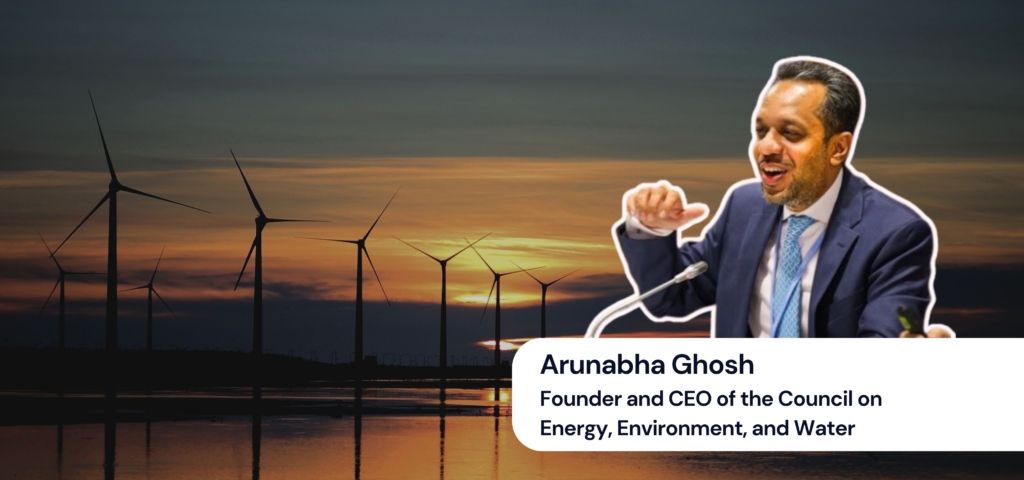In a recent conversation between Sandeep Pai and Arunabha Ghosh, the urgent need to address the climate crisis and the role of international platforms like the G20 and the United Nations (UN) was discussed. Ghosh’s insights shed light on the evolving landscape of climate governance and the challenges we face. As we approach COP28, it’s crucial to understand the complexity of these issues and the potential solutions that can drive meaningful change.

The Changing Landscape of Climate Governance
Arunabha Ghosh began by highlighting four significant shifts in global governance that have occurred over the past decade. These shifts underscore the evolving nature of climate discussions:
1. From Rule Takers to Rule Shapers: Developing countries, once rule-takers, are now actively seeking to shape global rules on climate. They are asserting their interests and striving to influence international agreements.
2. Shaping New Regimes: Beyond shaping individual rules, countries are now advocating for the creation of new institutions and regimes to address climate challenges. Examples include India’s International Solar Alliance and the Coalition for Disaster Resilience.
3. Regime Complexes: Climate change issues often require more than one international institution to address effectively. Regime complexes, involving multiple institutions and agreements, are emerging to tackle complex problems like trade, energy, climate, and global monetary issues.
4. Inclusive Stakeholder Engagement: Climate governance is no longer confined to intergovernmental negotiations. Non-governmental stakeholders, including industry, civil society, and philanthropic organizations, are active participants in shaping the global climate agenda.
These shifts reflect the changing dynamics of international relations, where countries and stakeholders actively choose which forums to engage with based on their goals and interests.
The Role of COP in the Current Climate Landscape
Ghosh painted a sobering picture of the upcoming COP28. He emphasized that while the ambition to address climate change is growing, tangible progress remains elusive. The world has seen increasing concentrations of greenhouse gases and the effects of climate change have accelerated beyond predictions.
Key Takeaways for COP28:
Expectation of Accountability: COP28 is likely to witness heightened scrutiny and criticism as countries grapple with the consequences of unmet commitments. There will be pressure to shift the focus from mere ambition-raising to actual implementation and accountability.
Finance as a Game Changer: Ghosh emphasized that the key to converting mutual admiration into mutual accountability lies in financial mechanisms. COP28 must address the issue of climate finance comprehensively, going beyond the $100 billion floor. Different types of funding, from public and private investment to consumer choices, need to be incorporated into a holistic financing strategy.
Restructuring Global Finance: Climate finance should flow efficiently from capital-rich regions to regions with greater potential for renewable energy generation, such as solar-rich equatorial zones. Current trends show that capital often circulates where renewable energy potential is underutilized. A restructuring of global finance mechanisms is essential.
Maintaining Open and Interdependent Markets: Distorted market practices, such as industrial policies that artificially favor certain industries or companies, should be addressed. To ensure a just and inclusive energy transition, markets should remain open and accessible to all, irrespective of their economic status.
Conclusion
As we approach COP28, Arunabha Ghosh’s insights offer a sobering but essential perspective on the challenges and opportunities ahead. Climate governance has evolved significantly, and the urgency to address the climate crisis is greater than ever. COP28 should focus on accountability, finance, and restructuring global markets to create a sustainable and inclusive path forward. The complexity of climate change demands innovative solutions and a collective commitment from all nations and stakeholders.
(Access the complete interview by tuning in to the TIEH podcast available on our website and other major podcast platforms.)


